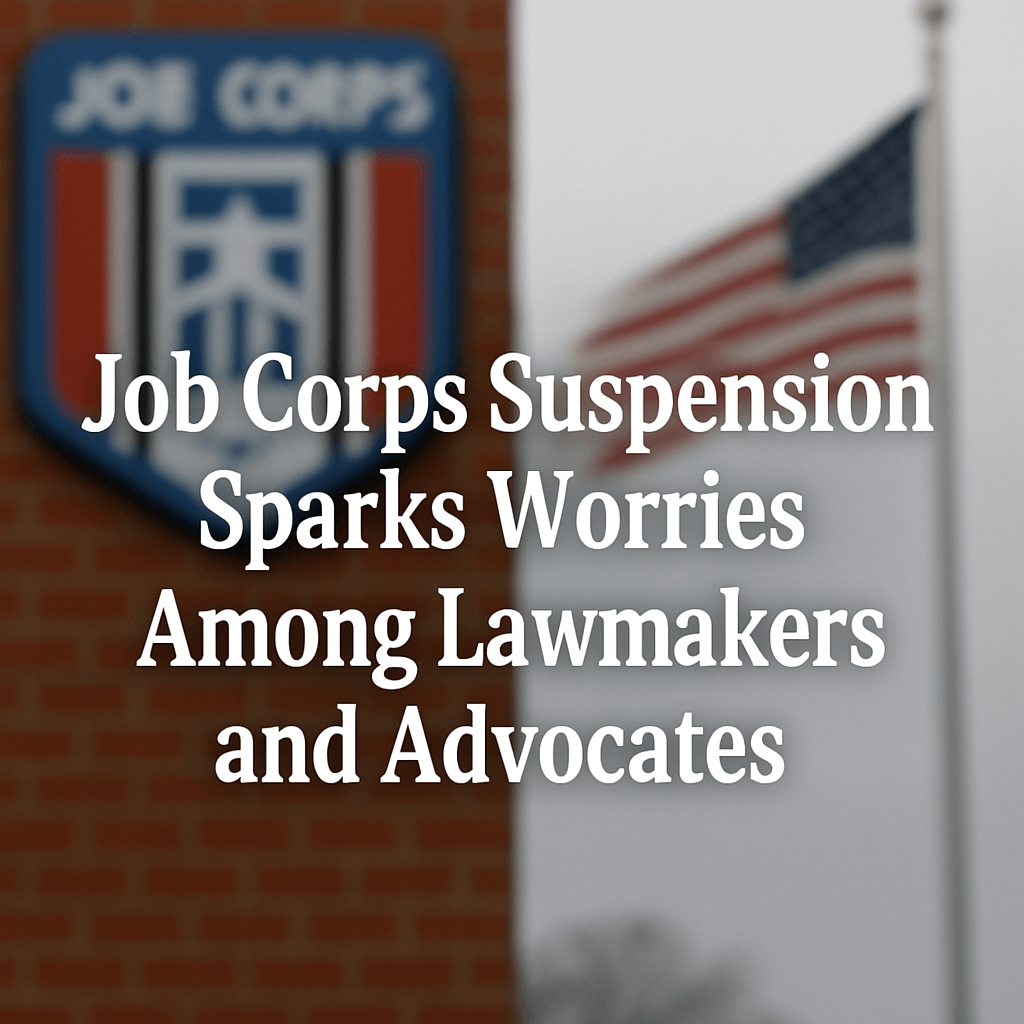Job Corps Suspension Sparks Worries Among Lawmakers and Advocates

Members of Congress and a federal judge have raised significant concerns about the Trump administration’s recent decision to suspend operations at Job Corps centers nationwide. This residential career training initiative for low-income youth, established over five decades ago, plays a vital role in equipping young individuals with essential job skills within a structured environment.
Administration’s Rationale for the Suspension
Last week, the Department of Labor announced a nationwide “pause of operations” affecting dozens of Job Corps centers managed by private contractors. According to the department, an internal review found the program to be excessively costly, with an unsatisfactory success rate characterized by an average graduation rate of under 39%. Below are some aspects highlighted in the internal review:
- Financial Viability: The report indicated that Job Corps operated at a $140 million deficit in the previous fiscal year, prompting calls for more efficient use of taxpayer funds.
- Safety Concerns: Over 14,000 serious incidents were reported in 2023 alone, which included cases of sexual assault, physical violence, and substance abuse within the centers.
The Department expressed intentions to transition both students and staff from these centers by June 30.
Impact on Vulnerable Youth
The Job Corps program is particularly important for young people who have struggled to complete high school or face other societal challenges. Participants received critical support, including:
- Tuition-free housing
- Nutritious meals
- Health care services
Critics of the suspension argue that closing these centers could lead to homelessness for many youths while stripping them of valuable opportunities. They contend that the Trump administration lacks the legal authority to suspend Job Corps operations entirely, as it was created through congressional legislation.
Congressional Response
During a recent hearing before the House Education and Workforce Committee, Labor Secretary Lori Chavez-DeRemer faced inquiries regarding the administration’s rationale for halting these services. Representative Bobby Scott, a Democrat from Virginia, highlighted Job Corps’ bipartisan support by citing a letter from Chavez-DeRemer, wherein she affirmed the program’s effectiveness in enhancing employment outcomes and reducing public benefits reliance for participants.
“Job Corps, which you know has bipartisan support in Congress, trains young, low-income people, and helps them find good-paying jobs and provides housing for a population that might otherwise be without a home,” – U.S. Rep. Bobby Scott.
Echoing similar sentiments, Representative Suzanne Bonamici of Oregon expressed that students in her district were devastated by this abrupt policy shift.
Legal Challenges and Court Orders
In response to the administration’s decision, U.S. District Judge Andrew Carter issued a temporary restraining order preventing the Labor Department from terminating jobs or removing students from the 99 contractor-run centers without congressional consent. This order emerged from a lawsuit filed by the National Job Corps Association, which argues that the suspension would result in severe repercussions, including job losses and dislocation of vulnerable youth.
Discrepancies in Reporting and Contextual Analysis
Chavez-DeRemer defended the administration’s move by stating that the Job Corps program’s reported failures necessitated immediate action to address its inefficacies. However, the National Job Corps Association countered these findings, stating that the figures regarding serious incidents were misleading, encompassing non-harmful events like power outages and weather-related issues.
The association also claimed that Job Corps’ graduation rates had historically remained above 60%, asserting that recent statistics were adversely affected by the COVID-19 pandemic’s impact on training and operations.
Historical Importance of Job Corps
Seth Harris, a senior fellow at the Burnes Center for Social Change and former acting secretary of labor, commented on Job Corps’ significance in Washington, D.C., reflecting on how it has garnered robust support across political lines. He noted that, during his administration, any move to curtail funding faced intense backlash from bipartisan representatives.
“This program serves as a safety net for many youth and plays a vital role in establishing a path towards self-sufficiency and stability. Legally, the process the Labor Department must follow for closures involves rigorous scrutiny and community engagement,” Harris stated, emphasizing the program’s importance and the legal requirements surrounding its termination.
The Path Forward
As the situation develops, the Job Corps program’s future remains uncertain. Advocates are pressing for legislative action to preserve it while ensuring youth access to the vital training and support they need to improve their life circumstances. The ongoing legal challenges and the administration’s stance will likely shape the conversation as lawmakers attempt to navigate the complex interplay of policy, funding, and the needs of America’s youth.
Conclusion
With substantial implications for low-income youth and the broader community, the unfolding developments surrounding Job Corps will require careful analysis and advocacy, being mindful of both social welfare and fiscal responsibility.
Source: fortune